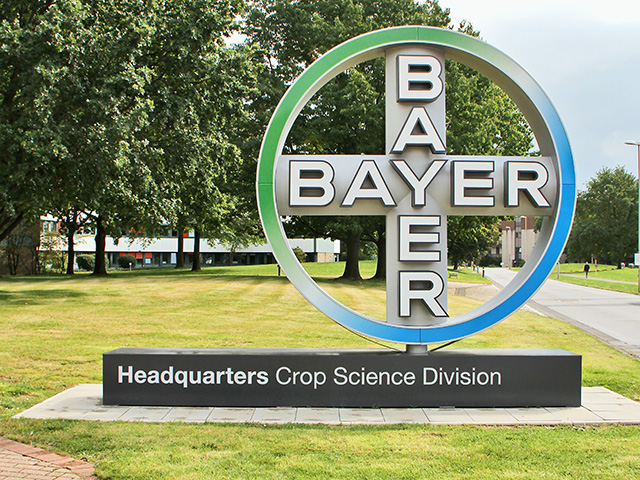Plaintiffs Object to Roundup Settlement
Federal Court Considers Preliminary Approval of Roundup Cancer Settlement
LINCOLN, Neb. (DTN) -- Bayer AG's attempts to move a Roundup settlement across the finish line in a federal court met with resistance this week as attorneys representing cancer victims objected to the proposed $2 billion glyphosate settlement on a number of fronts.
At the beginning of February, Bayer announced it had reached a $2 billion settlement resolving outstanding legal issues related to the herbicides glyphosate and dicamba.
During a hearing before the U.S. District Court for the District of Northern California on Wednesday, attorneys for several plaintiffs involved in the class action suit objected to details of the plan and called for the court to reject it.
The court is considering a preliminary approval of the settlement.
One provision would allow Bayer to continue to sell Roundup. The settlement also would require healthy people who have already been exposed to Roundup to relinquish their right to sue if they are later diagnosed with non-Hodgkin's lymphoma.
Attorneys for the plaintiff also objected to a provision that would limit legal options for people exposed to glyphosate who later become sick.
During a hearing Wednesday, U.S. District Court Judge Vince Chhabria expressed concern about limiting future Roundup claims.
"The concept that you're covered if you're exposed prior to a certain day and not covered if you're exposed after a certain day, usually that's used if a company has decided to take a product off the market or slap a warning label on it," he said.
P[L1] D[0x0] M[300x250] OOP[F] ADUNIT[] T[]
In June 2020, Bayer reached a settlement of between $8.8 billion and $9.6 billion to resolve current and future litigation on glyphosate and dicamba. But that agreement ran into legal troubles and has not been fully finalized. Now Bayer is trying again, this time focusing on a settlement just for future claims of injury from its glyphosate herbicide, branded Roundup.
According to a Bayer news release, the settlement would establish a fund to pay between $5,000 to $200,000 to future plaintiffs who allege they developed cancer from glyphosate use. The settlement would make a total of $2 billion available and last four years.
The company would also create an advisory science panel "whose findings would not be preclusive but can be used as evidence in potential future litigation" involving class members.
The company said it would work with EPA to "provide greater transparency" and access to glyphosate studies. That would include adding a reference link on the glyphosate labels to provide consumers with access to scientific studies and information.
Bayer acquired Roundup brands as part of its $63 billion purchase of Monsanto. Bayer continues to maintain that glyphosate is safe, regularly pointing out that the EPA and many other countries' regulatory agencies support glyphosate's continued use.
But during the past few years, Bayer has lost a number of lawsuits from plaintiffs who alleged their use and exposure to Roundup caused non-Hodgkin's lymphoma and other cancers.
In May 2019, a California jury awarded $2.055 billion in damages to a couple that battled cancer after decades of using the product. The couple, both in their 70s, were each diagnosed with the same type of non-Hodgkin's lymphoma. The court later reduced the damages to $86.7 million.
At the end of March 2019, a California jury awarded $80 million to a man with non-Hodgkin's lymphoma who had used glyphosate at an animal refuge for nearly 30 years. A court later reduced the damages to $25.2 million.
In 2018, another jury in the state awarded $289 million to a groundskeeper with cancer who used the chemical. The award has since been reduced to $20.5 million.
EPA reapproved an interim registration of glyphosate in January 2020. The Rural Coalition, Organizacion en California de Lideres Campesinas, Farmworker Association of Florida, Beyond Pesticides and the Center for Food Safety filed a petition for review in March 2020.
Those groups asked a federal court to vacate the decision.
They allege EPA violated the Federal Insecticide, Fungicide and Rodenticide Act and violated the agency's duties in the Endangered Species Act by not consulting with the U.S. Fish and Wildlife Service or the National Marine Fisheries Service before issuing the decision.
Most recently, EPA released a biological evaluation of glyphosate's potential effect on endangered species and critical habitats, finding that it was "likely to adversely affect" 1,676 listed species and 759 critical habitats, the vast majority of the species and habitats the agency considered.
The agency's findings mean glyphosate will have to undergo more reviews before its routine registration review, initiated in 2009, can be completed, most likely sometime in 2021, according to EPA estimates on its website.
Read more here: https://www.dtnpf.com/….
Todd Neeley can be reached at todd.neeley@dtn.com
Follow him on Twitter @DTNeeley
(c) Copyright 2021 DTN, LLC. All rights reserved.






